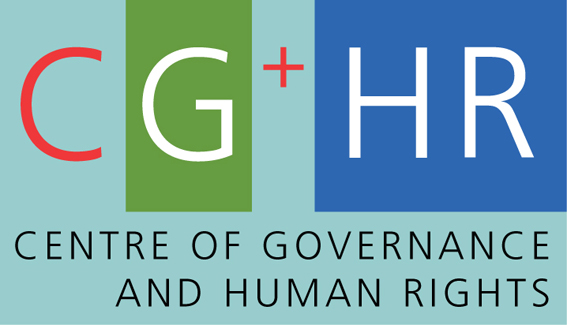| 9 Sep 2016 - 10 Sep 2016 | 4:00pm | Alison Richard Building, 7 West Road, Cambridge, CB3 9DT | |
- Description
- Programme
Description
Registration for the conference is now closed.
Convenors
Stephanie Diepeveen (University of Cambridge)
George H. Karekwaivanane (University of Edinburgh)
Sharath Srinivasan (University of Cambridge)
Summary
Over the last decade Africa has been experiencing what has commonly been referred to as a ‘digital revolution’, driven, in no small measure, by the rapid spread of mobile telephony. While digital technologies have enabled individuals to connect instantaneously and mobilise on a hitherto unimaginable scale, the manner and extent to which such mobilisation is fostering new trajectories of political change is under-researched. In addition, the seemingly unmediated nature of digital communications, coupled with notions such as ‘cyberspace’ and ‘virtual reality’, mistakenly distract us from the material infrastructure, capital investment and institutional control that make digital communications possible. In short, the same enabling technologies for ‘digital publics’ can, in the control of powerful actors – from national security agencies to telecommunications and internet giants – be directed at purposes and logics that are quite at odds with the political agency and power of citizens coming together.
Many east African countries, understood broadly, have been at the forefront of Africa’s digital transformation, and the time is ripe to bring together scholarship on this region. The Digital Publics and Counterpublics Workshop, jointly hosted by the Centre of Governance and Human Rights, and CRASSH, will critically explore the ways that new digital technologies are progressively being incorporated in everyday practices in east Africa and the socio-political impacts this has had. This workshop will involve presentations by scholars in the disciplines of political science, media studies, history and anthropology who have increasingly sought to bring thinking on the public sphere to bear upon social and political processes in Africa.
Some of the questions we hope to engage with in the course of the workshop include: What kinds of publics and counterpublics are being convoked by means of digital media, and how do they relate to older publics that were convened by print media or radio? How are digital technologies altering existing forms of social exchange and belonging, and to what extent are they creating possibilities for changes to how people imagine community and forms of belonging? What are the transnational dimensions of digital communications, how are they made possible and made useful by foreign corporate actors and security agencies?
This workshop is aimed at furthering the study of digital media and everyday politics in Africa through interdisciplinary discussion. Thus, it is structured to promote discussion, and it is expected that participants will actively engage with the papers being presented.
Sponsors



Supported by the Centre for Research in the Arts, Social Sciences and Humanities (CRASSH), the British Institute in Eastern Africa (BIEA), and the Centre of Governance and Human Rights (CGHR).
Administrative assistance: events@crassh.cam.ac.uk
Programme
| Friday 9 September 2016 | |
| 16.00 - 16.15 | Registration |
| 16.15 - 16.45 | Welcome Sharath Srinivasan (University of Cambridge); Stephanie Diepeveen (University of Cambridge); George Karekwaivanane (University of Edinburgh) |
| 16.45 - 18.15 | Session 1: Digital Publics in Historical Perspective Chair: Emma Hunter (University of Edinburgh)
George Karekwaivanane (University of Edinburgh) ‘Social Media, Affect and Unruly Publics: Examining the Baba Jukwa phenomenon in
Irene Brunotti (University of Leipzig) ‘Interrogating cyberbaraza as a new public in Zanzibar political impasse’ |
| Saturday 10 September 2016 | |
| 9.00 - 9.30 | Coffee & Tea |
| 9.30 - 11.00 | Session 2: Sociality and Digital Media Chair: Dina Ligaga (University of Witswatersrand)
Andrea Grant (University of Cambridge) ‘Bringing the Daily Mail to Africa: Tabloid media and the creation of youth publics in postgenocide Rwanda’
Inge Brinkman (Ghent University) & Mirjam de Bruin (University of Leiden) ‘Global parochial publics: politics, history, and the moral order on Bundu dia Kongo and Chadian youth internet sites’ |
| 11.00 - 11.30 | Break |
| 11.30 - 12.15 | Session 2: Sociality and Digital Media (contd) Chair: Dina Ligaga (University of Witswatersrand)
Austin Bryan (University of North Carolina) ‘Virtual Publics: The New Safe Spaces for LGBT Ugandans’ |
| 12.15 - 13.15 | Lunch |
| 13.15 - 15.30 | Session 3: States, Politics and Digital Publics Chair: Florence Brisset-Foucault (Paris-Sorbonne)
Iginio Gagliardone (University of Witswatersrand), Nicole Stremlau (University of ‘Ethiopia’s 2015 elections and the online “Democratic” Developmental State’
Siri Lamoreaux & Timm Sureau (Max Planck Institute) ‘Knowledge and Legitimacy: The fragility of digital mobilization in Sudan’
Sharath Srinivasan & Stephanie Diepeveen (University of Cambridge) ‘Power and political authority of the imagined audience-as-public on interactive radio in Kenya and Zambia ’ |
| 15.30 - 16.00 | Break |
| 16.00 - 17.00 | Reflections and next steps Chair: Sharath Srinivasan |



